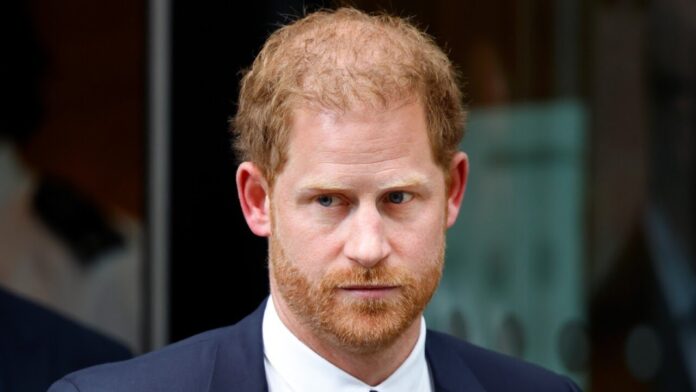The Duke of Sussex must restart the application process for permanent residency as his current visa offers no path to citizenship, says an immigration expert
Prince Harry will not be able to attain US citizenship under the conditions of his current visa, a top American immigration lawyer has revealed. The Duke of Sussex, residing in the US on a “special kind of visa,” would need to “start from scratch” with a new application to obtain permanent residency.
Melissa Chavin, of Chavin Immigration Law Office, provided these insights during a discussion with GB News’ Digital Royal Editor Svar Nanan-Sen and Royal Correspondent Cameron Walker on the latest episode of The Royal Record podcast. When asked about the specifics of Harry’s potential path to citizenship if he holds an A1 head-of-state visa, Chavin clarified that such a visa does not provide a route to US citizenship. “It’s a diplomat visa,” she explained. “You want to give someone the experience, basically that they’re not in the United States, even though they are physically in the United States.”
The A1 visa, typically granted to heads of state or royal family members, requires Prince Harry to reapply for a different type of visa to pursue permanent residency. The discussion also touched on the ongoing legal battle involving the Heritage Foundation, which is pressing the Department of Homeland Security to release Harry’s immigration records. Chavin deemed the potential release of such records “quite unprecedented” and suggested that the public interest in this case might not justify breaking privacy norms.
Cameron Walker and Svar Nanan-Sen delved into the rarity of the A1 visa and its implications. Chavin noted that while this visa type is rare for the general public, it is the standard for royal family members. Despite the legal scrutiny surrounding Prince Harry’s visa status, particularly in light of his admissions of drug use in his memoir Spare, Chavin emphasized that his current visa does not allow for a seamless transition to citizenship.
Analysis:
Political Impact: Prince Harry’s visa status and its implications for his residency and citizenship prospects in the US highlight the intersection of high-profile individuals and immigration policy. This situation underscores the stringent and complex nature of US immigration laws, even for prominent figures. The Duke’s case may influence public discourse on immigration, potentially prompting calls for policy reviews or adjustments to accommodate unique cases.
Social Reflection: The debate over Prince Harry’s immigration status mirrors broader societal discussions about privilege and access within immigration systems. While the Duke’s high-profile status grants him certain privileges, his need to navigate the same legal frameworks as others underscore the universal application of immigration laws. This juxtaposition may provoke conversations about fairness and equality in immigration policies.
Psychological Aspect: For Prince Harry, the uncertainty surrounding his immigration status could bring significant psychological stress. Navigating the complexities of visa applications and the potential for public and legal scrutiny may impact his sense of stability and security. Additionally, the broader public might experience varying degrees of empathy or resentment based on their own immigration experiences or perceptions of royal privilege.
Sociological Angle: Prince Harry’s case illustrates the societal implications of immigration laws on family dynamics and personal identity. As a member of the British royal family living in the US, his residency status affects not only his legal standing but also his family’s ability to fully integrate and participate in American society. This situation highlights the sociological impact of immigration policies on personal and familial well-being.
Fashion Culture: While not directly related to fashion, Prince Harry’s residency status influences his and Meghan Markle’s roles as cultural and social influencers. Their presence in the US shapes public perceptions and trends, from philanthropy to lifestyle choices. Any change in their residency status could impact their influence and the cultural dynamics they help shape
